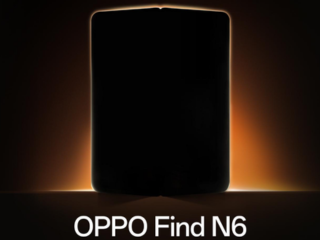- Home
- Internet
- Internet Opinion
- Powered by Personalisation: How AI and IoT Will Shape Unique Experiences for Customers
Powered by Personalisation: How AI and IoT Will Shape Unique Experiences for Customers

Brands today are at crossroads, and vying with one another to provide tailored and very specific personalised experiences. It is expected that over the next five years, three sectors – retail, healthcare and financial services - will benefit immensely through customisation, and around $800 billion (roughly Rs. 51,16,040 crores) will be shifted to the 15 percent of companies that adopt this as a core strategy.
From a customer point of view, personalisation provides a completely different experience. One of the best examples of personalisation in the current scenario is ‘genomic medicine’ or ‘precision medicine’. Personalised medicine is a new concept in the world of therapeutics, wherein there is emphasis on genetic codes of the patient to predict the potency of the impending cure – which is referred to as ‘Pharmacogenomics’. Genes provide the right information that fuels informed decision making about each one’s health. A famous example of this is Angelina Jolie, who underwent a double mastectomy, post tests that revealed that she carried the same genetic marker for breast cancer as her mother.
Personalisation propelled by technology
Technology continues to deliver more impressive one-to-one personalised experiences in real time. Today, leading marketers apply design thinking, to bring in customer value propositions, which span across the entire gamut of the customer journey. This enables nailing the right opportunities at the right moments, leading to delight and purchase.
![]()
According to Infosys research, consumers are more likely to go with a retailer that has a history of them, their purchase behaviour, their choices, and can provide recommendations based on their exclusive behaviour. As old retail models begin to take a backseat, stores need to provide experiences that are on par with what online retailers offer. This is possible today since as consumers, we leave our digital footprints everywhere.
The world of IoT, virtual Assistants, and AI, takes personalisation to a new level. In Alexa or Google Assistant, I have my own personal assistant. Based on my footprint, Google enhances my experience of using phones. Google tracks my emails, calendar, and reminds me of shipments coming my way, without me setting up any reminders. Pandora learns about my music preferences and likes and creates personalised radio stations for me to listen to. Amazon creates offers and recommendations based on past purchase, browsing habits and many such data elements.
Digital footprint – a true representation of our personalities
This is also true in the physical world. Smart sellers can use analytics, coupled with machine learning and artificial intelligence to drive hyper personalisation so that a sales associate can understand your requirements and provide contextual recommendations in real time to customers in the store. In this case, data is stored on every product purchased by an individual shopper, on every trip to the store.
Another area of personalisation is the ability to deliver insights in a much more consumable format. Many credit card companies share an end of the year statement of how your expenses panned out. Consider this: a video that showcases the expense pattern that is yours, speaks with you, and shows visually where the money was spent. We can extend this to personalised billing statements, and many other such use cases.
![]()
The transactions carried out by each one of us can be recorded, leading to huge data available about each person’s time spent on the Internet. The personalisation game is all about picking the right attributes one may be interested in and coming up with a profile to achieve high degree of 1:1 effect. Technologies such as data lakes, high performance computing on commodity hardware (using cloud), machine learning make it possible to process the data and derive insights.
Personalisation (or rather the use of data to create personalisation) also brings up concerns over privacy, use of data for apt purpose, ethical use of such data and outcomes. Privacy advocates talk about need for control and opt in. Brands need to keep this in mind and protect the interests of the consumer at all times.
Today personalisation has paved the way for brands to engage consumers directly, cementing relationships, leading to stickiness and brand loyalty. While this presents challenges galore, it also opens up multiple vistas of opportunities to take consumer connect many notches higher.
Prasad Joshi is Vice President and Head, Infosys Centre for Emerging Technology Solutions, Infosys.
For details of the latest launches and news from Samsung, Xiaomi, Realme, OnePlus, Oppo and other companies at the Mobile World Congress in Barcelona, visit our MWC 2026 hub.
Related Stories
- Samsung Galaxy Unpacked 2026
- iPhone 17 Pro Max
- ChatGPT
- iOS 26
- Laptop Under 50000
- Smartwatch Under 10000
- Apple Vision Pro
- Oneplus 12
- OnePlus Nord CE 3 Lite 5G
- iPhone 13
- Xiaomi 14 Pro
- Oppo Find N3
- Tecno Spark Go (2023)
- Realme V30
- Best Phones Under 25000
- Samsung Galaxy S24 Series
- Cryptocurrency
- iQoo 12
- Samsung Galaxy S24 Ultra
- Giottus
- Samsung Galaxy Z Flip 5
- Apple 'Scary Fast'
- Housefull 5
- GoPro Hero 12 Black Review
- Invincible Season 2
- JioGlass
- HD Ready TV
- Latest Mobile Phones
- Compare Phones
- Apple iPhone 17e
- AI+ Pulse 2
- Motorola Razr Fold
- Honor Magic V6
- Leica Leitzphone
- Samsung Galaxy S26+
- Samsung Galaxy S26 Ultra
- Samsung Galaxy S26
- Asus TUF Gaming A14 (2026)
- Asus ProArt GoPro Edition
- Apple iPad Air 13-Inch (2026) Wi-Fi + Cellular
- Apple iPad Air 13-Inch (2026) Wi-Fi
- Huawei Watch GT Runner 2
- Amazfit Active 3 Premium
- Xiaomi QLED TV X Pro 75
- Haier H5E Series
- Asus ROG Ally
- Nintendo Switch Lite
- Haier 1.6 Ton 5 Star Inverter Split AC (HSU19G-MZAID5BN-INV)
- Haier 1.6 Ton 5 Star Inverter Split AC (HSU19G-MZAIM5BN-INV)

















